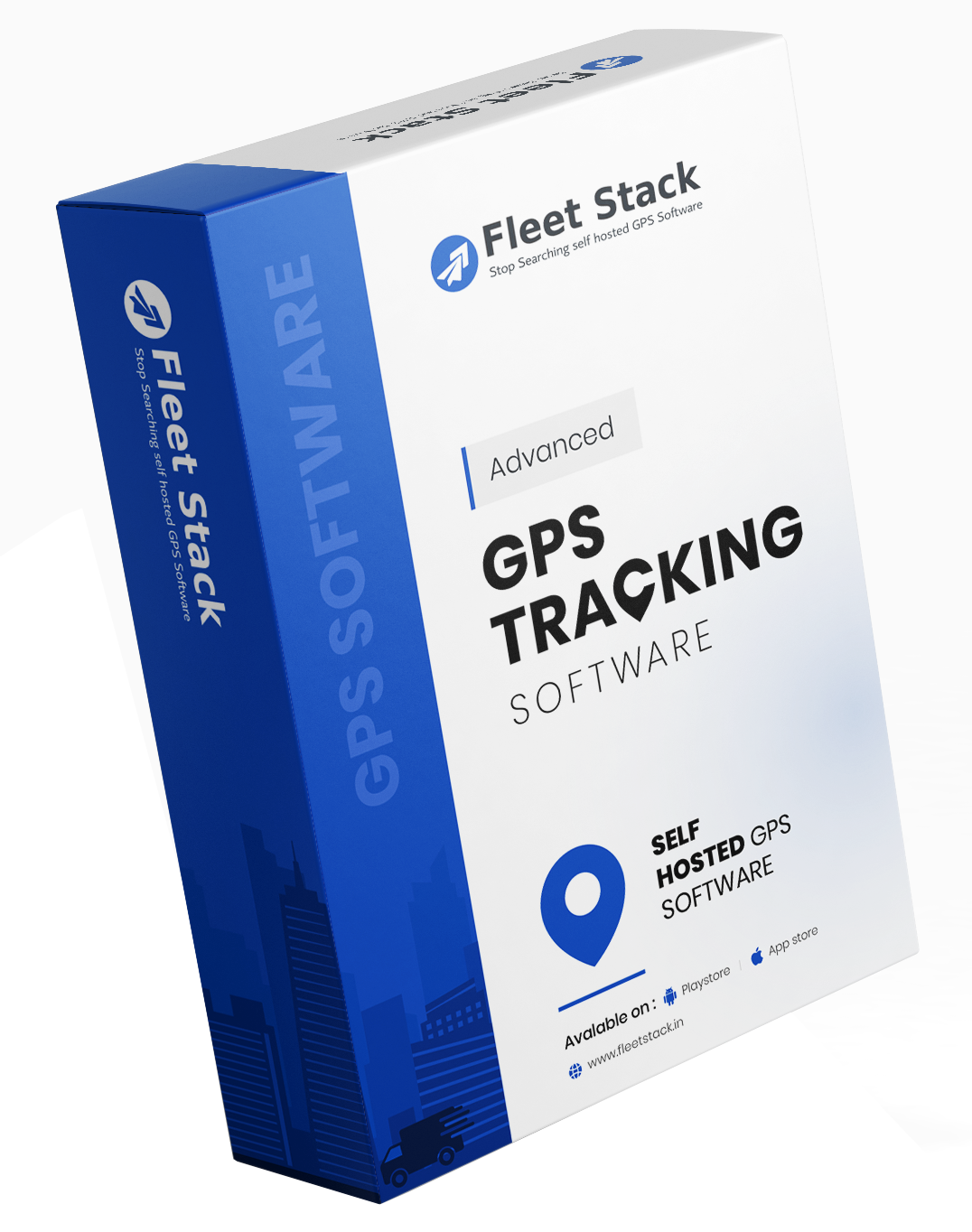
All About Fleet Management Software
In the dynamic world of transportation and logistics, the role of fleet management software has evolved into a linchpin for operational excellence. From tracking vehicle locations in real time to optimizing routes and enhancing overall efficiency, fleet management software is a transformative force reshaping the landscape of modern transportation.
In the intricate web of transportation and logistics, where every mile matters and operational efficiency is paramount, fleet management software emerges as the linchpin that transforms the way organizations navigate their fleets. More than just a technological tool, fleet management software is a catalyst for a revolution in how vehicles are tracked, optimized, and maintained. This comprehensive exploration unveils the multifaceted layers of fleet management software, delving into its core functionalities, the benefits it bestows upon organizations, and the pivotal role it plays in ushering in a new era of intelligent and streamlined fleet operations.
Start Free TrialCore Functionalities of Fleet Management Software
Fleet management software is a comprehensive solution designed to streamline the management and coordination of a fleet of vehicles.
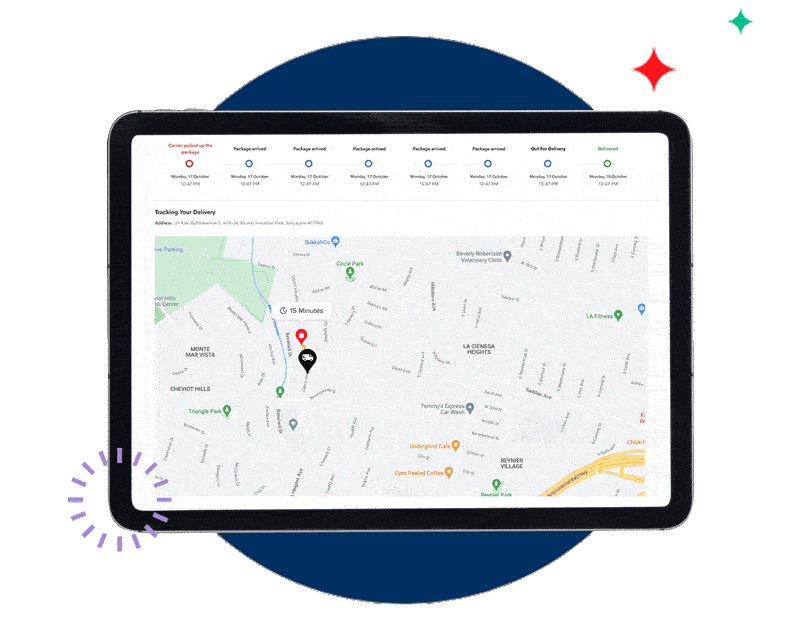
Real-Time Tracking
FMS provides real-time tracking capabilities through GPS and telematics. This feature allows fleet managers to monitor the live location, speed, and status of each vehicle. Real-time tracking enhances visibility, enabling proactive decision-making, improving route optimization, and responding promptly to deviations or emergencies.

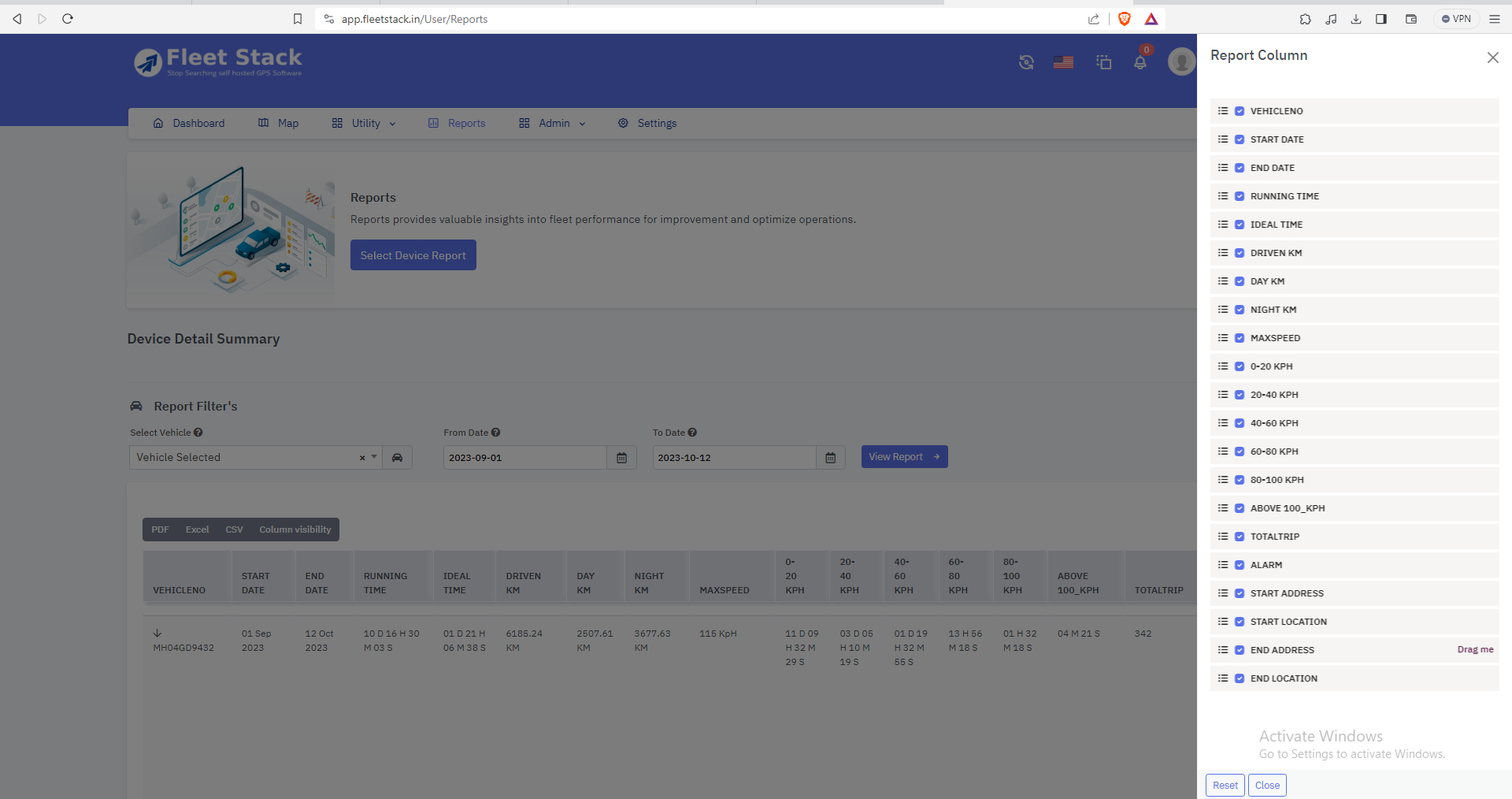
Advanced Reporting
Fleet Management Software generates detailed and customizable reports that offer insights into various aspects of fleet operations. These reports may include fuel consumption, driver performance, maintenance histories, and overall fleet efficiency. Advanced reporting facilitates data-driven decision-making, helping businesses identify trends and areas for improvement.
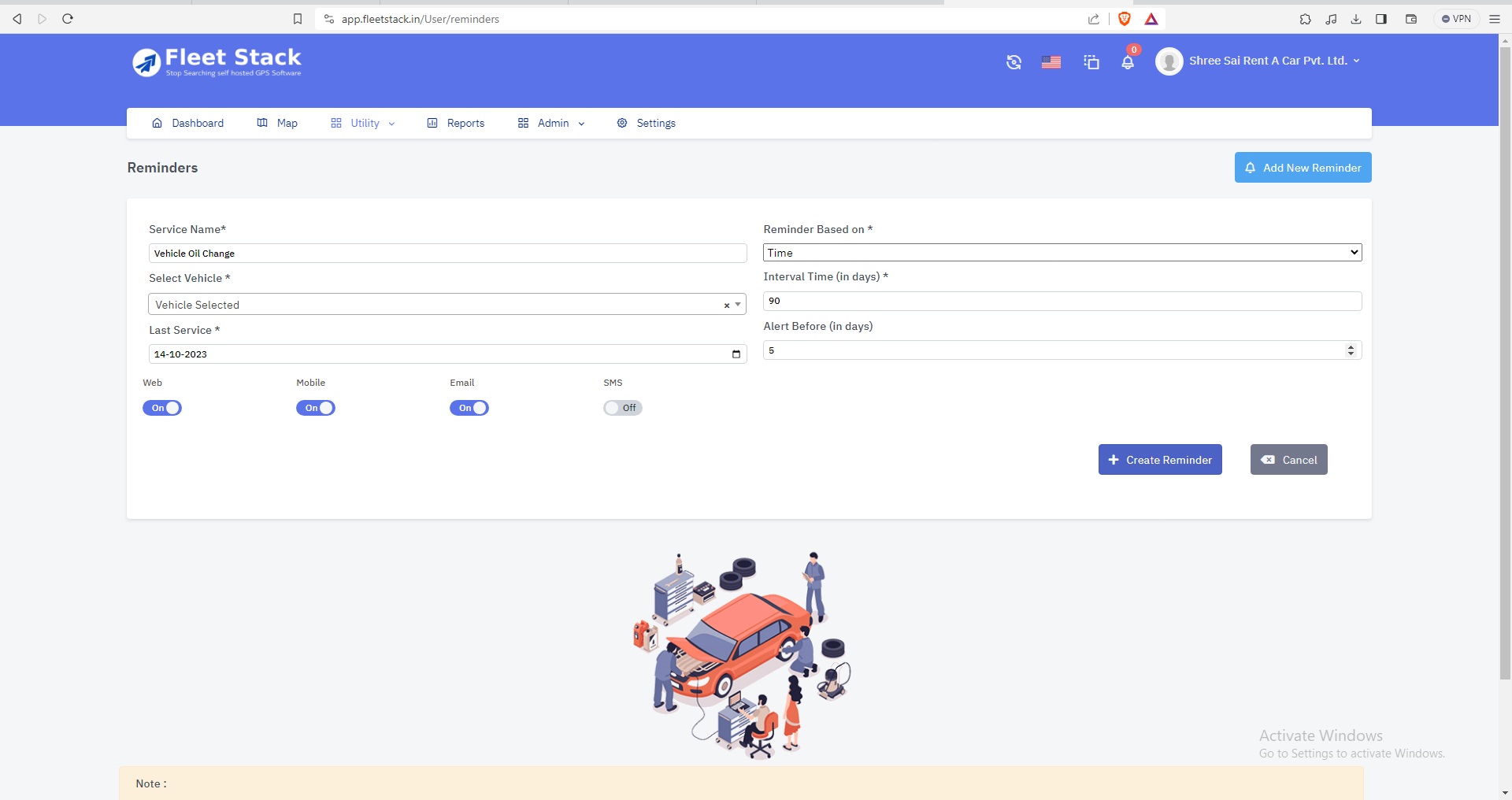
Maintenance Alerts
Automated maintenance alerts are a crucial feature of FMS. The software monitors vehicle health and usage patterns, sending timely alerts for scheduled maintenance activities. This preventive approach reduces the risk of unexpected breakdowns, prolongs vehicle lifespan, and contributes to cost savings by avoiding costly repairs.
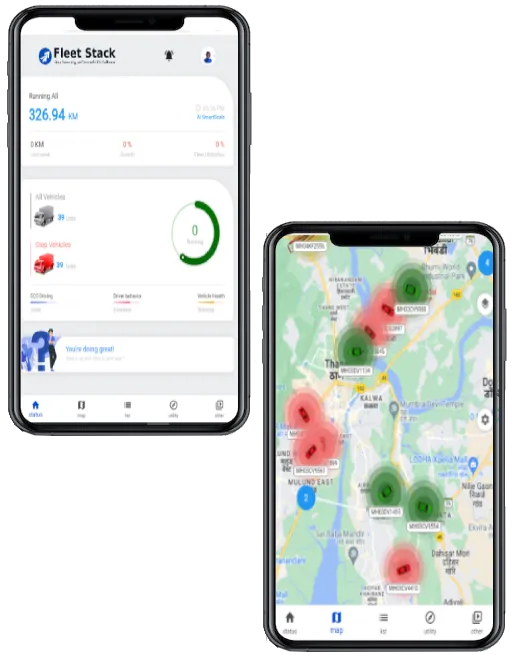
Mobile Accessibility
With the prevalence of mobile devices, FMS ensures accessibility on the go. Mobile applications or responsive web interfaces allow fleet managers to monitor and control fleet operations from their smartphones or tablets. This flexibility is particularly valuable for managers who need to make decisions while away from their desks.
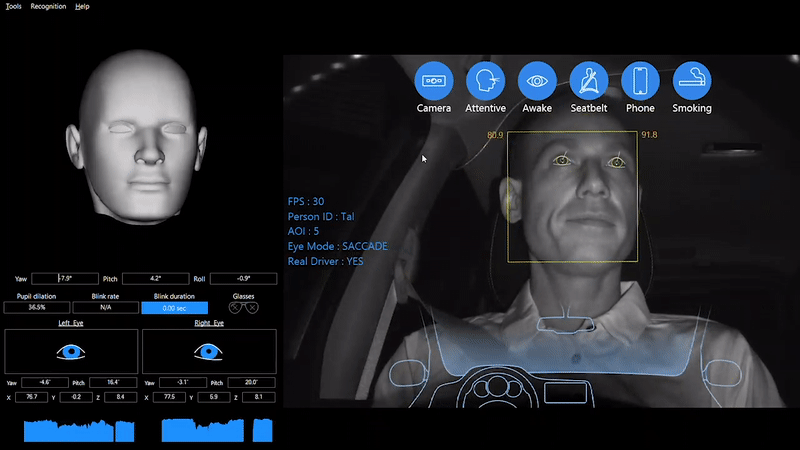
Driver Behavior Monitoring
FMS includes tools for monitoring driver behavior, promoting safe driving practices and compliance with established protocols. It tracks parameters such as speed, harsh acceleration or braking, and adherence to predefined routes. Driver behavior monitoring contributes to improved safety, reduced accidents, and overall better fleet performance.

Multi Language
Recognizing the global nature of business operations, FMS often comes with multi-language support. This feature accommodates diverse teams and users, ensuring that the software is accessible and user-friendly for individuals who speak different languages within the organization.
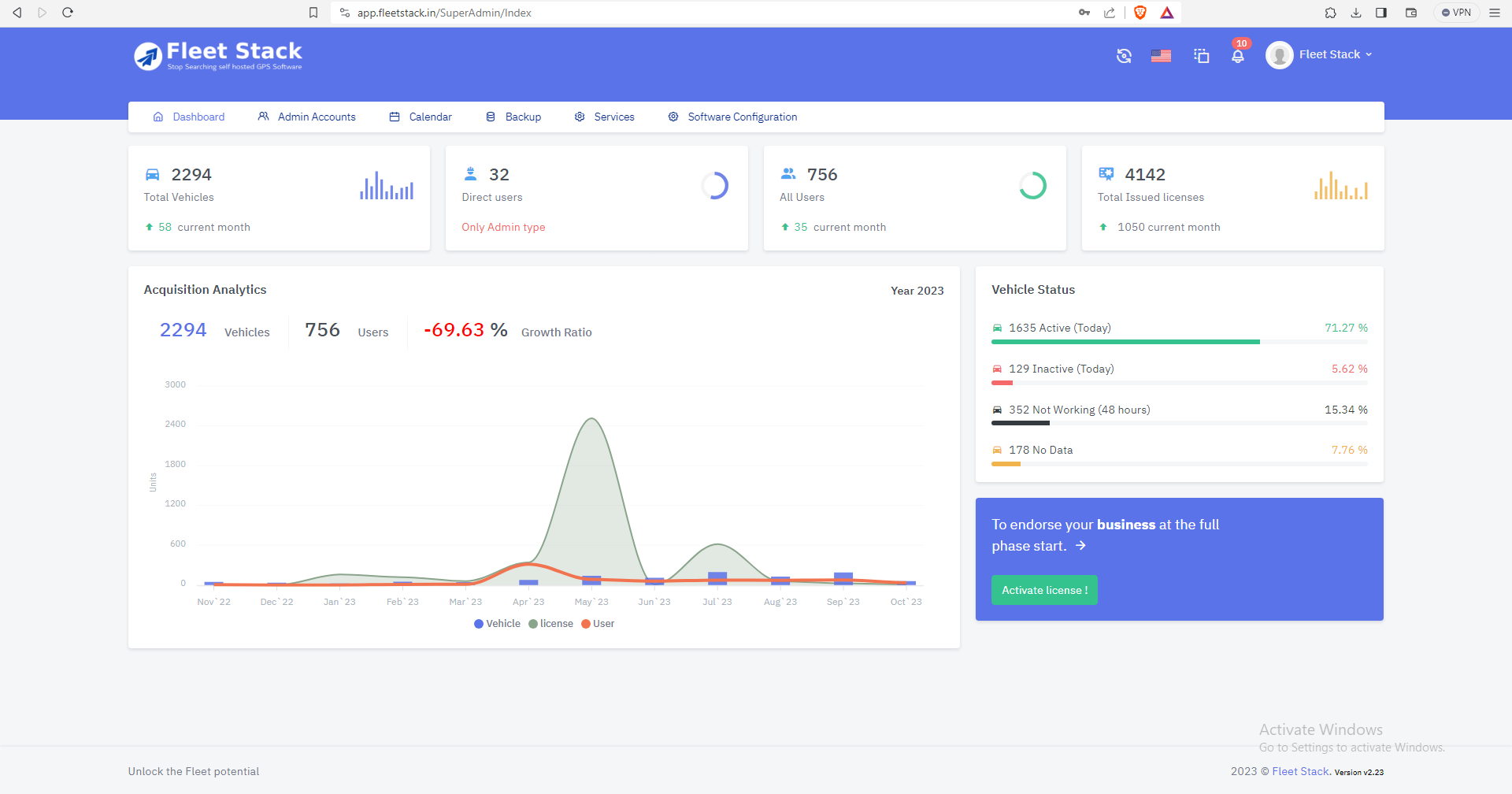
User-Friendly Interface
The user interface of Fleet Management Software is designed to be intuitive and user-friendly. This ensures that fleet managers, drivers, and other users can navigate the software easily, maximizing its effectiveness without the need for extensive training.
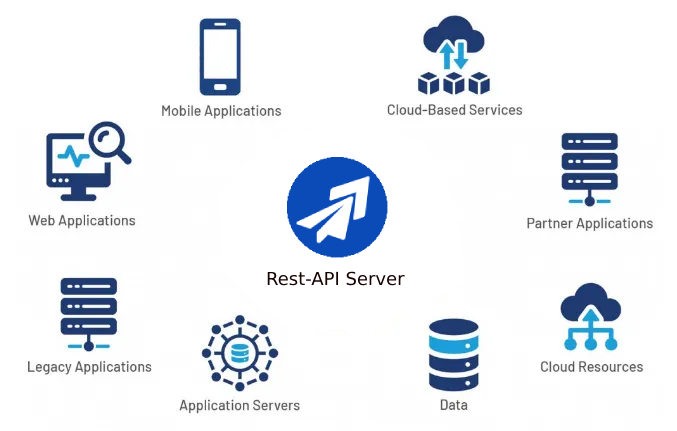
Rest API Integration
Fleet Management Software offers Rest API integration capabilities, allowing seamless connectivity with other business systems. Integration with accounting software, inventory management systems, or HR platforms ensures that fleet operations are part of the broader organizational ecosystem. This interconnected approach enhances efficiency and data accuracy.
 What is Fleet Management?
What is Fleet Management?
Fleet management refers to the comprehensive oversight and control of a company's vehicle fleet. This includes everything from vehicle acquisition and maintenance to driver management, compliance, and more. Effective fleet management is crucial for organizations with a significant number of vehicles, as it directly impacts operational costs, safety, and overall efficiency.
Fleet Management Software is a sophisticated technological solution that combines various tools and features to streamline the processes associated with managing a fleet of vehicles. It serves as a digital nerve center, offering a unified platform where diverse aspects of fleet operations converge for efficient oversight. At its core, FMS is engineered to enhance the overall efficiency, safety, and cost-effectiveness of managing a fleet.
The Evolution of Fleet Management
The evolution of fleet management is a fascinating journey that reflects the continuous adaptation of businesses to technological advancements. In the early days, managing a fleet meant relying on manual record-keeping, with managers maintaining logs on paper to track vehicle usage, fuel consumption, and maintenance schedules. However, as the scale and complexity of fleets grew, so did the need for more efficient and accurate management systems.
Rise of Fleet Management Software
The evolution culminated in the development of comprehensive Fleet Management Software (FMS) solutions. FMS emerged as an integrated platform that brought together various functionalities, including GPS tracking, maintenance scheduling, and driver management. This shift allowed businesses to streamline their operations, enhance decision-making, and achieve unprecedented levels of efficiency.
Current Landscape: Cloud-Based and IoT Integration
In the present day, Fleet Management Software has embraced cloud computing and the Internet of Things (IoT). Cloud-based FMS provides accessibility from anywhere with an internet connection, while IoT integration enables a wealth of real-time data, facilitating predictive analytics and automation. These advancements empower businesses to make data-driven decisions, optimize routes, and ensure the overall well-being of their fleets.
The Role of Fleet Management Software in Modern Business
In the contemporary business environment, where time is of the essence and data-driven decisions are crucial, Fleet Management Software plays a multifaceted role in ensuring that a company's vehicular assets are not only operational but are contributing to the organization's success. The key functionalities and roles of FMS include:
Centralized Monitoring
Fleet Management Software serves as a centralized hub for real-time monitoring of all vehicles within a fleet. Through GPS tracking and telematics, managers can access live data, such as the location, speed, and status of each vehicle. This capability enables proactive decision-making and immediate response to any issues or deviations from planned routes.
Comprehensive Control
By integrating various features, including maintenance scheduling, fuel management, and driver behavior monitoring, FMS provides comprehensive control over the entire fleet. Managers can set maintenance alerts, monitor fuel consumption, and ensure that drivers adhere to safety protocols and compliance standards.
Data-Driven Optimization
Fleet Management Software harnesses the power of data analytics to optimize operations. Through historical data analysis and real-time insights, businesses can identify patterns, inefficiencies, and opportunities for improvement. This data-driven approach extends to route optimization, helping businesses save on fuel costs, reduce transit times, and enhance overall operational efficiency.
Integration Capabilities
One of the strengths of Fleet Management Software lies in its ability to integrate seamlessly with other business systems. Whether it's connecting with accounting software for expense tracking or integrating with inventory management systems for streamlined logistics, FMS ensures that fleet operations are part of the broader organizational ecosystem.
Advantages of Fleet Management Software
The adoption of Fleet Management Software translates into a multitude of advantages for businesses:
Cost Savings
By optimizing routes, reducing fuel consumption, and preventing costly breakdowns through predictive maintenance, FMS contributes to significant cost savings.
Enhanced Safety
Through real-time monitoring of driver behavior and adherence to safety protocols, FMS promotes a safer working environment, reducing the risk of accidents.
Regulatory Compliance
Fleet Management Software assists businesses in ensuring compliance with regulatory standards, preventing penalties and legal issues.
Increased Efficiency
The automation of tasks and streamlined processes result in increased overall operational efficiency, allowing businesses to focus on strategic initiatives.
Fleet Management Software serves as a linchpin in modern business operations, offering a centralized, data-driven approach to managing fleets. Its ability to monitor, control, and optimize various aspects of fleet management positions businesses for success in a competitive and rapidly evolving market. As technology continues to advance, the role of FMS is set to expand, providing businesses with ever more sophisticated tools to navigate the complexities of fleet operations.
